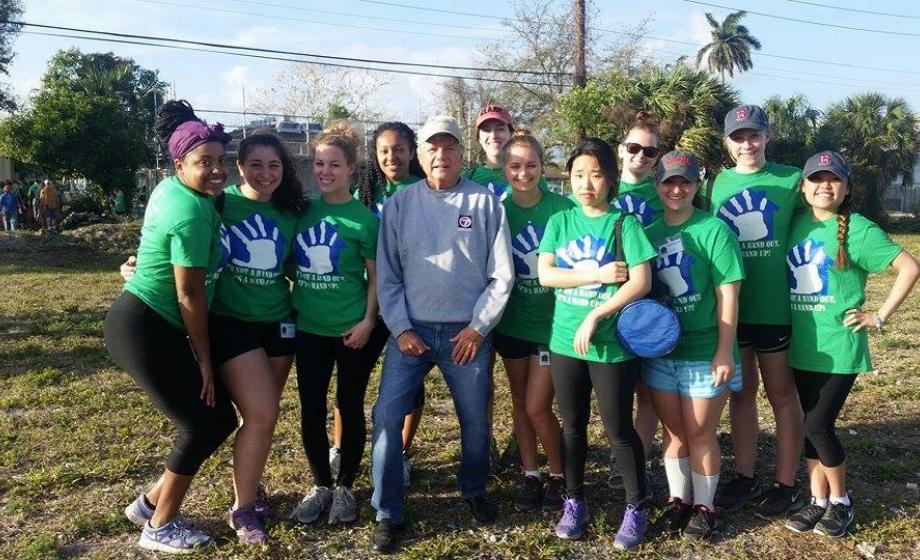
Spring break provides an opportunity for students to take a much-needed break from the stress of their studies. While some venture to warmer climates for rest and relaxation, others opt to migrate to places where they can ditch their winter coats, roll up their sleeves and help others. Thirteen Clark undergraduates recently spent their break working for Habitat for Humanity’s Collegiate College Program building homes for low-income families in Broward, Florida. The trip was organized by Clark’s Community Engagement Office and LEEP Center.
“This trip was one of the greatest experiences in my life so far,” said Amanda Grace ’17. Grace met students from other schools—including 50 student volunteers from the University of Pittsburgh-Johnstown—and bonded with fellow Clarkies.
“[The trip] allowed me to gain a new perspective of myself and the world around me,” she said.
Emma Pierce ’16 said the trip was “a great experience” that “provided a sense of accomplishment and community” when folks took a look back at what they had accomplished together by the end of the week.
“Habitat works toward providing affordable housing to low income participants, who we were lucky enough to be able to meet and work with during the week,” said Pierce.
The group was chaperoned by Ruby Maddox, director of LEEP Projects.
“The work wasn’t easy but they rolled up their sleeves and dove right in,” Maddox said of the Clark students. “At the end of the trip, I think we all understood how much Habitat’s work really impacts communities.”
The annual Collegiate Challenge Program, one of the country’s largest alternative spring break programs, is held every March. The program, which invites students to spend one week working with Habitat affiliates to build homes and improve communities, was started in 1989. Since then, more than 230,000 college- and high school-aged students have volunteered during their spring break to help build or rehabilitate homes, donating nearly $24 million to Habitat affiliates.
See more photos from the trip on Clark’s Flickr page.
~ By Fileona Dkhar ’17
